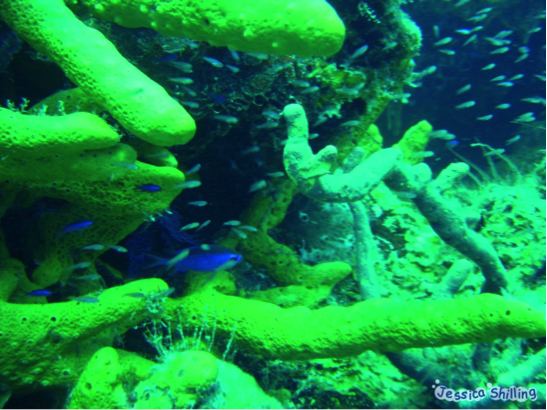When we talk about climate change we often think about the atmosphere, the warmest decade on record, increased floods and droughts, hurricanes, fires, melting glaciers and sea level rise, BUT we are not talking and focusing enough on Ocean Acidification.
Every day, oceans absorb about a third of the carbon dioxide released into the atmosphere from human activities. When we burn fossil fuel about 50% goes into atmosphere, about 20% is taken up by trees and about 30% is absorbed by the ocean making the water dangerously acidic. The more acidic the ocean gets the more potentially lethal it becomes making it harder for aquatic ecosystems and animals to survive.
Studies have shown that a more acidic environment has a dramatic effect on some shelled sea creatures. Shelled sea creatures need carbonate to build their shells, with increased acidity they can’t get enough of it and it makes it very hard to live and reproduce which affects corals reefs, oysters, clams, lobsters and tiny shelled plankton. When shelled organisms are in danger, the entire food web may also be at risk. Billions of people worldwide rely on food from the ocean. Many jobs and economies around the world depend on the fish in our oceans.

Vicki Nichols Goldstein –Board member of the Blue Frontiers Campaign and an avid believer that people all over the country have a stake in ocean protection is currently bringing her experience of ocean protection, networking, and conservation to Boulder where she founded the Colorado Ocean Coalition (COCO); a movement to protect oceans from a mile high by uniting people from all over the world to engage in ocean advocacy.
The mission of the Colorado Ocean Coalition is to create, unite and empower a Colorado coalition with shared values, goals and actions to promote healthy oceans through education and community engagement.
Vicki regularly gives speeches and educates about ocean advocacy, acidification and plastics in our seas. She constantly works to educate about how to help reduce ocean acidification by strongly recommending biking, taking the bus, using low fuel cars and utilizing alternative energy such as wind and solar.
A large component of COCO is to help people understand ocean issues and provide opportunities for people to help with the solutions. They do this in fun and exciting ways, and their annual event, Making WAVES brings in cutting-edge researchers, world-renowned speakers, award-winning filmmakers and ocean advocates from across the country. This year it will be held in Boulder on the weekend of September 20-22 at the University of Boulder. Vicki strongly believes that you don’t have to see the ocean to protect it!



